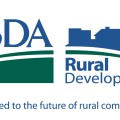 Companies hoping to save money while still offering their employees quality benefits may discover the Small Business Health Options Program (SHOP) helps them deliver. A recent study released by the NORC at the University of Chicago found that on-marketplace plans provide significantly lower premiums than their off-marketplace counterparts.
Companies hoping to save money while still offering their employees quality benefits may discover the Small Business Health Options Program (SHOP) helps them deliver. A recent study released by the NORC at the University of Chicago found that on-marketplace plans provide significantly lower premiums than their off-marketplace counterparts.
SHOP exchanges have been established in many states along with the implementation of the Affordable Care Act (ACA). The SHOP exchanges are meant to help small businesses locate and secure coverage for their employees, but some questions have been raised about whether it is actually more affordable to purchase coverage outside the exchanges.
While insurers who offer the same plans on and off the exchange are required to keep pricing the same in both arenas, off-marketplace only plans and those offered exclusively through the exchanges are available.
Jon Gabel, a senior fellow at NORC, has released information that shows marketplace plans can provide businesses with significant savings. The NORC study conducted by Gabel examined the SHOP exchanges in 26 states.
Gabel found that marketplace plans, on average, offer 7% lower premiums than plans only sold off the marketplace. Insurers that do not participate in the marketplace, the study reported, have premiums that are roughly 2 full percentage points higher.
Gabel’s study did not delve into the disparities in pricing, but he does have some theories as to why SHOP plans offer savings for small businesses. In a statement to Congress, Gabel said the lower pricing could be attributable to the establishment of more narrow networks, the competitive nature of the marketplace and the inclusion of fewer non-essential benefits within SHOP plans.
Regardless of the reasons why, SHOP plans offer lower premiums and choice for employers seeking savings, Gabel concluded.
They also offer such benefits as access to multiple carriers in all but one state, the employee choice model that gives workers an ability to select coverage and defined contributions that help limit premium increases.
Despite their financial benefits, however, Gabel said SHOPs must fend off threats by other insurance systems, such as self-insurance, in order to survive. A dual situation where two insurance systems exist, one that’s risk rated and the other not, is likely to lead to the demise of non-risk rated systems.
Gable urged Congress to “give SHOPs a chance” and, based on the savings delivered, concluded that they are the “place to shop” for small businesses in need of savings.





